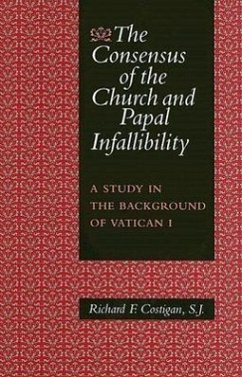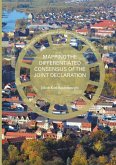In defining papal infallibility in 1870 the First Vatican Council asserted a strongly monarchical view: a papal definition of the faith is irreformable (infallible) by itself, and not from the consensus of the Church. These words explicitly reject Article 4 of the Gallican Declaration of 1682, which states that the pope cannot define the faith single-handedly, apart from the consensus of the Church (i. e., the bishops of the world). This book offers the first thorough analysis of the ecclesiological ideas of the Gallican theologians as expressed in their own writings. Previous studies of the debates at Vatican I fail to examine carefully the Gallican doctrine rejected by the council. Even leading historians, at that time and since, simply refer to the "Gallican view" without citing sources or clearly defining or understanding the Gallican thinkers. In contrast, this study facilitates a balanced and much-needed comparison of the differing Gallican and papalist ecclesiologies during the period 1682-1870. After a concise introduction that defines the two schools of theology, Richard Costigan examines the thought of nine major theologians on the subject: Bossuet, Tournely, Orsi, Ballerini, Bailly, Bergier, La Luzerne, Muzzarelli, and Perrone. In his analysis of the research, Costigan finds that the "consensus of the Church" in the Gallican view is not a simple claim and does not generally demand ratification of a papal definition by the bishops after the pope issues it. Rather authority is to be exercised in conjunction with the rest of the episcopate in a collegial and consensual manner. This concept of consensus draws on the history of the early and medieval church and is seen as coherentwith the doctrine later expressed in Vatican II's Lumen Gentium. Without addressing present-day Catholic controversy, this study offers the necessary historical background for any ongoing discussion of the nature and exercise of papal authority.

